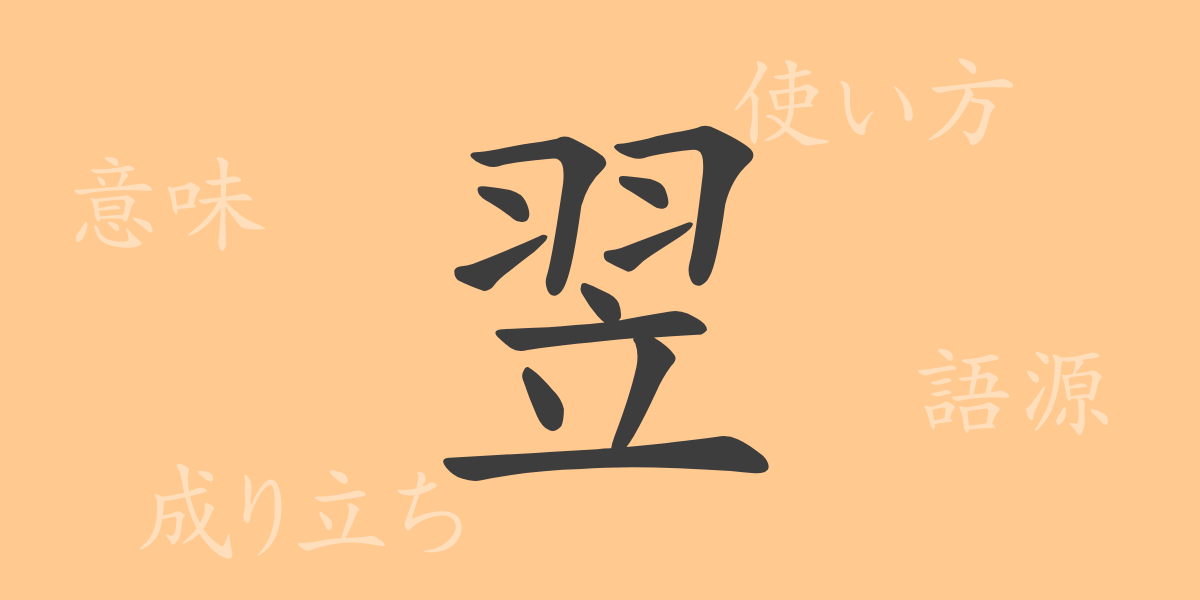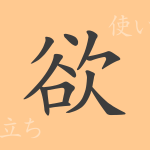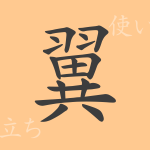The beauty of the Japanese language is reflected in its delicate characters. Each character holds deep meaning, and its usage can be considered a form of linguistic magic. This time, we spotlight the commonly used kanji “翌(よく, yoku)” and delve into its charm. In this article, we will cover the origin, meaning, usage, and commonly used compounds and idioms involving “翌(よく, yoku)”. It’s packed with information to enrich your knowledge.
Origin of 翌(よく, yoku)
The kanji “翌(よく, yoku)” is a character that originated from ancient China. Its formation is old, derived from pictographs and ideographs. The character “羽(はね, hane)” means wings, and “立(たつ, tatsu)” is positioned below it, symbolizing the act of flying towards the next day. It vividly expresses the notion of time flying by.
Meaning and Usage of 翌(よく, yoku)
“翌(よく, yoku)” means “next” and is primarily used to denote time. Commonly, it appears in terms like “翌日(よくじつ, yoku-jitsu)” meaning the next day, or “翌年(よくねん, yoku-nen)” meaning the next year. Besides direct time expressions, it is also used in contexts like “翌章(よくしょう, yoku-shou)” meaning the next chapter, or “翌ページ(よくぺーじ, yoku-peeji)” meaning the next page.
Reading, Stroke Count, and Radical of 翌(よく, yoku)
The kanji “翌(よく, yoku)” provides various information through its form and meaning.
- Reading: The On-reading is “ヨク(よく, yoku)”, and there is no Kun-reading.
- Stroke Count: It has a total of 11 strokes.
- Radical: The radical is “羽(はねへん, hanehen)”.
Compounds, Idioms, and Proverbs Using 翌(よく, yoku) and Their Meanings
There are many compounds and idioms containing “翌(よく, yoku)” that are frequently heard in Japanese. For example, “翌檜(よくひ, yokuhi)” means the hinoki cypress of the next day, referring to the future. “翌朝(よくあさ, yokuasa)” means the next morning, and “翌々日(よくよくじつ, yoku-yoku-jitsu)” means the day after the next. These compounds are commonly used in daily conversations and business scenes.
Summary of 翌(よく, yoku)
The meaning embedded in a single kanji can sometimes surpass our imagination. The character “翌(よく, yoku)” enriches Japanese expressions with its simple yet powerful meaning. When you encounter “翌(よく, yoku)” in daily life, it might be interesting to recall its history and meaning, and reflect on the background of the word.

























